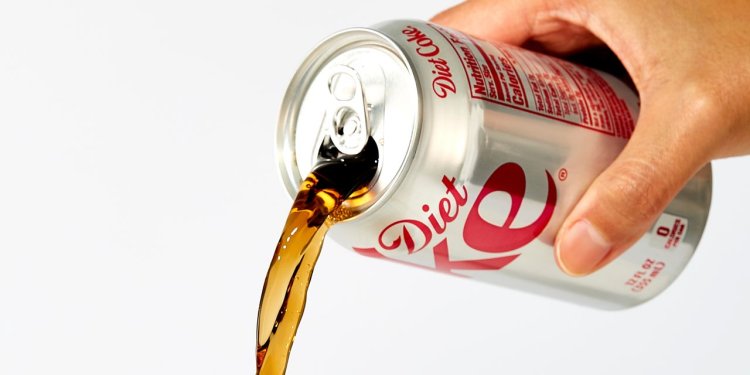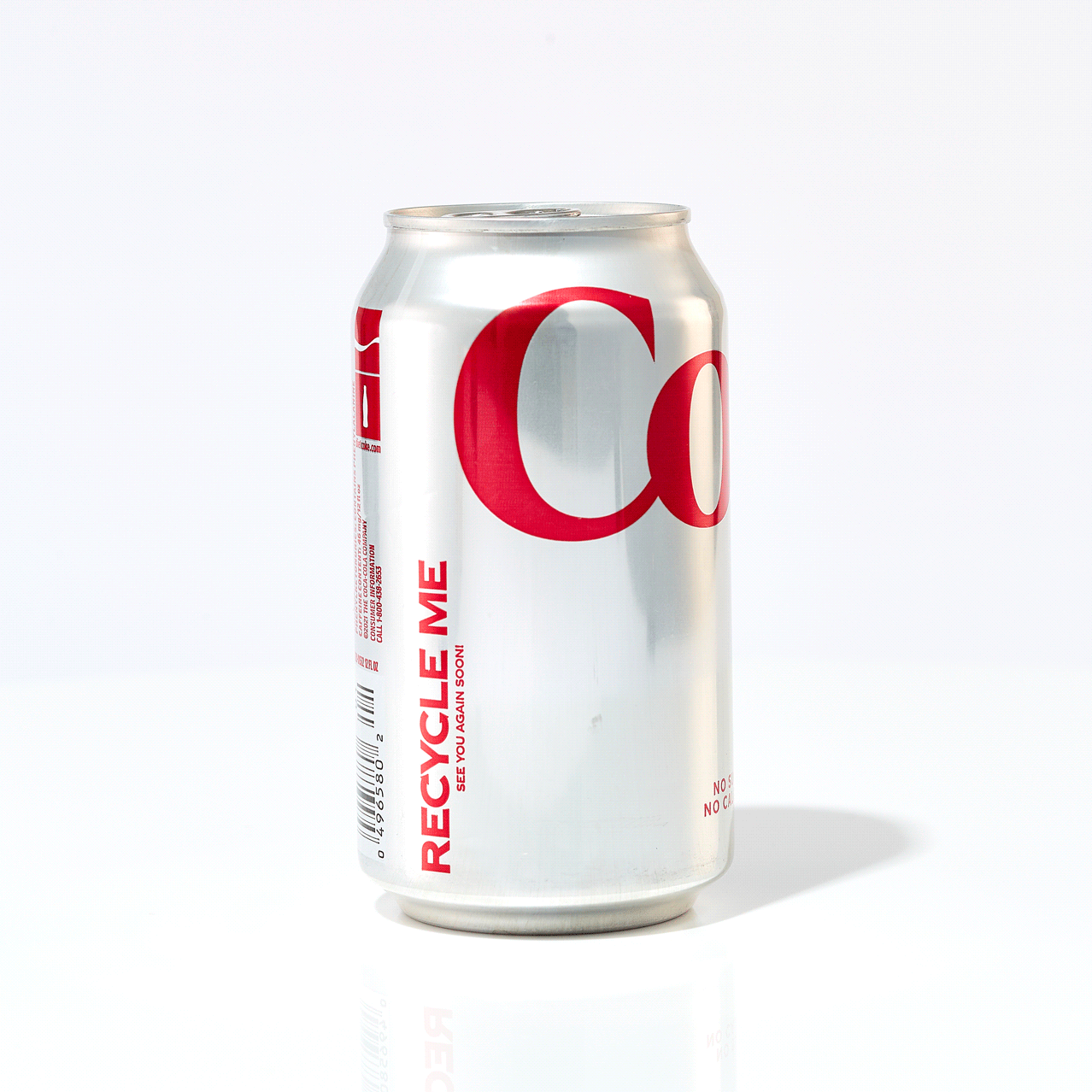Is Aspartame Bad for Your Health? What to Know About Diet Coke’s Key Ingredient
WHO issues conflicting conclusions, calling the artificial sweetener safe and listing it as a ‘possible carcinogen’ F. Martin Ramin/The Wall Street Journal F. Martin Ramin/The Wall Street Journal By Jennifer Maloney and Betsy McKay Updated July 13, 2023 6:31 pm ET Two different arms of the World Health Organization released separate findings on the widely used sweetener aspartame—one calling it safe and the other identifying it as a possible cancer hazard. Here’s what you need to know: Is it safe to drink Diet Coke? Yes, in moderate amounts. Food regulators around the world agree that aspartame is safe. Aspartame has been studied for decades. The WHO


Two different arms of the World Health Organization released separate findings on the widely used sweetener aspartame—one calling it safe and the other identifying it as a possible cancer hazard.
Here’s what you need to know:
Is it safe to drink Diet Coke?
Yes, in moderate amounts. Food regulators around the world agree that aspartame is safe. Aspartame has been studied for decades. The WHO reaffirmed its recommendation that people consume no more than 40 milligrams of aspartame a day for each kilogram they weigh—which would be a lot of soda.
With around 200 mg of aspartame per 12-ounce can of Diet Coke, that is roughly 16 cans a day for a 175-pound person. People get aspartame from some other food sources, though, and often the presence or amounts of aspartame in them aren’t disclosed. The WHO and other health experts also caution against consuming large amounts of sweetened products, including soda. They recommend drinking water instead.
“This is particularly important for young children” whose tastes are developing, said Dr. Francesco Branca, director of the WHO’s department of nutrition and food safety.

Photo: F. Martin Ramin/The Wall Street Journal
What is aspartame?
Aspartame is an artificial sweetener commonly used as a sugar substitute in foods and beverages. Aspartame is about 200 times sweeter than sugar. It is also an ingredient in the tabletop sweetener Equal.
What kinds of foods and drinks contain aspartame?
Aspartame is an ingredient in nearly all diet and zero-sugar sodas. It is sometimes used in combination with other sweeteners. Aspartame can be found in other low- or no-sugar products such as yogurt, Trident chewing gum, Jell-O instant pudding mix, Mrs. Butterworth’s syrup and toothpaste. Its presence isn’t always disclosed.
What did the World Health Organization say about aspartame?
One group, the International Agency for Research on Cancer, or IARC, classified aspartame as possibly carcinogenic to humans. It said it had found “limited evidence” for cancer in humans, specifically for a type of liver cancer known as hepatocellular carcinoma. IARC based its finding on three studies that found links between aspartame consumption and the risk of liver cancer. It also based its classification on studies in rodents and laboratory experiments.
The other group, the Joint FAO/WHO Expert Committee on Food Additives, or Jecfa, found “no convincing evidence” of health harms from aspartame. Jecfa said it based its conclusion on animal and human studies, and on the fact that aspartame is broken down in the gastrointestinal tract into molecules that are identical to some found in common foods. Jecfa is overseen jointly by the WHO and the Food and Agriculture Organization of the United Nations.

Aspartame can be found in Trident chewing gum
Photo: The Wall Street Journal
What else has the WHO identified as “possibly carcinogenic”?
More than 300 substances and activities have been classified in this category. They include Asian pickled vegetables, gasoline and gasoline engine exhaust, lead, talc-based body powder and aloe vera leaf extract. The list also includes some types of human papillomavirus, or HPV. Activities include carpentry and working in dry cleaning or textile manufacturing.
Why did two arms of the WHO come to different conclusions on aspartame?
IARC and Jecfa have different goals and approaches. IARC, a research organization, evaluates whether a substance or activity can potentially cause harm—not the risk of developing cancer at a given exposure level. The WHO calls this the first step in understanding a particular cancer risk.
Jecfa examines the risk of a real-life exposure of a food additive on health overall, including cancer and other diseases and conditions.
IARC said it was asked to evaluate aspartame in 2019 by an advisory group of experts, based on new emerging evidence. Its findings are aimed at the research community, said Mary Schubauer-Berigan, acting head of the IARC monographs program. “This shouldn’t really be taken as a direct statement that indicates that there is a known cancer hazard from consuming aspartame,” she said. “This is really more a call to the research community to try to better clarify and understand the carcinogenic hazard that may or may not be posed by aspartame consumption.”
Jecfa was given the task of reviewing aspartame by the WHO’s member states, Branca said. The two groups said they coordinated on their evaluations.

Aspartame is an ingredient in nearly all diet and zero-sugar sodas.
Photo: Daniel Acker/Bloomberg News
I drink diet soda. Which of these reports should I focus on?
Jecfa’s report is more directly relevant for consumers. It determines the risk of cancer and other harms from real-world levels of exposure to a food additive. The U.S. Department of Health and Human Services wrote to the WHO last year, warning that two separate reviews of aspartame could be confusing to consumers. The U.S. said Jecfa was better suited to assess any risk associated with aspartame because it looks at more data and considers all possible outcomes, including cancer.
What do medical experts say?
Consumers should use the IARC report to re-evaluate their use of aspartame along with known carcinogens such as processed meat and alcohol, said Dr. William Dahut, chief scientific officer at the American Cancer Society.
The public shouldn’t panic over the IARC finding, said George Kyriazis, associate professor at the Ohio State University College of Medicine, who studies the activity of artificial sweeteners in the body. The evidence of a link between aspartame and liver cancer isn’t strong, and other factors may explain the cancer, including obesity, he said.
SHARE YOUR THOUGHTS
Do you think aspartame is safe? Join the conversation below.
Given how widely consumed aspartame is and the many years it has been on the market, he said, “if the small amounts that the average consumer uses were adequate to cause cancer, we would know that by now for sure.”
A healthy person “who wishes to flavor their coffee in the morning with a couple of packages of Equal or would like to have a diet soda accompanying their meal—this is not someone who should be concerned,” Kyriazis said. A person who drinks a lot of diet drinks might want to cut down, he said.
How long has aspartame been used as a sweetener in foods and drinks?
Aspartame was first approved by the U.S. Food and Drug Administration in 1974 as a tabletop sweetener and an ingredient in foods and drinks. In 1981, Jecfa recommended a maximum daily intake for aspartame of 40 mg per kg of body weight.

What do soda companies say?
People can feel confident in consuming foods and beverages with aspartame because the WHO, after a thorough review, has found no reason to change the recommended daily intake of the sweetener, said the American Beverage Association, an industry group that represents soda giants including Coca-Cola and PepsiCo.
Aspartame has played a key role in the industry’s efforts over the past decade to reduce beverage calories in the American diet. Full-sugar sodas have been linked to obesity and diabetes.
PepsiCo finance chief Hugh Johnston, in an interview Thursday about the company’s latest earnings, said he doesn’t expect diet soda sales to be affected by the WHO findings.
“I don’t have any expectation that it’s going to change,” he said, “because the weight of the evidence is still so much in favor of aspartame as something that is beneficial to human health.”
—Ngai Yeung contributed to this article.
Write to Jennifer Maloney at [email protected] and Betsy McKay at [email protected]
What's Your Reaction?













